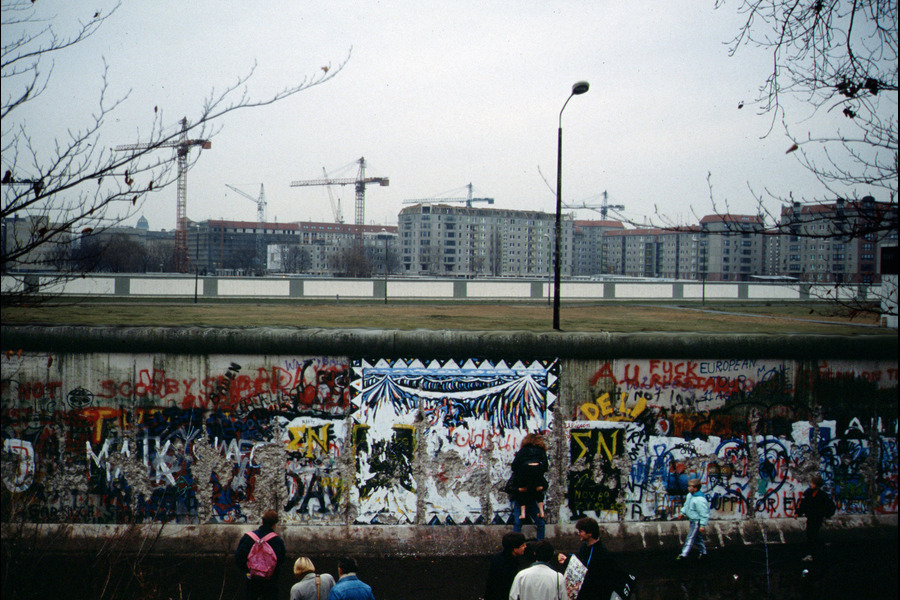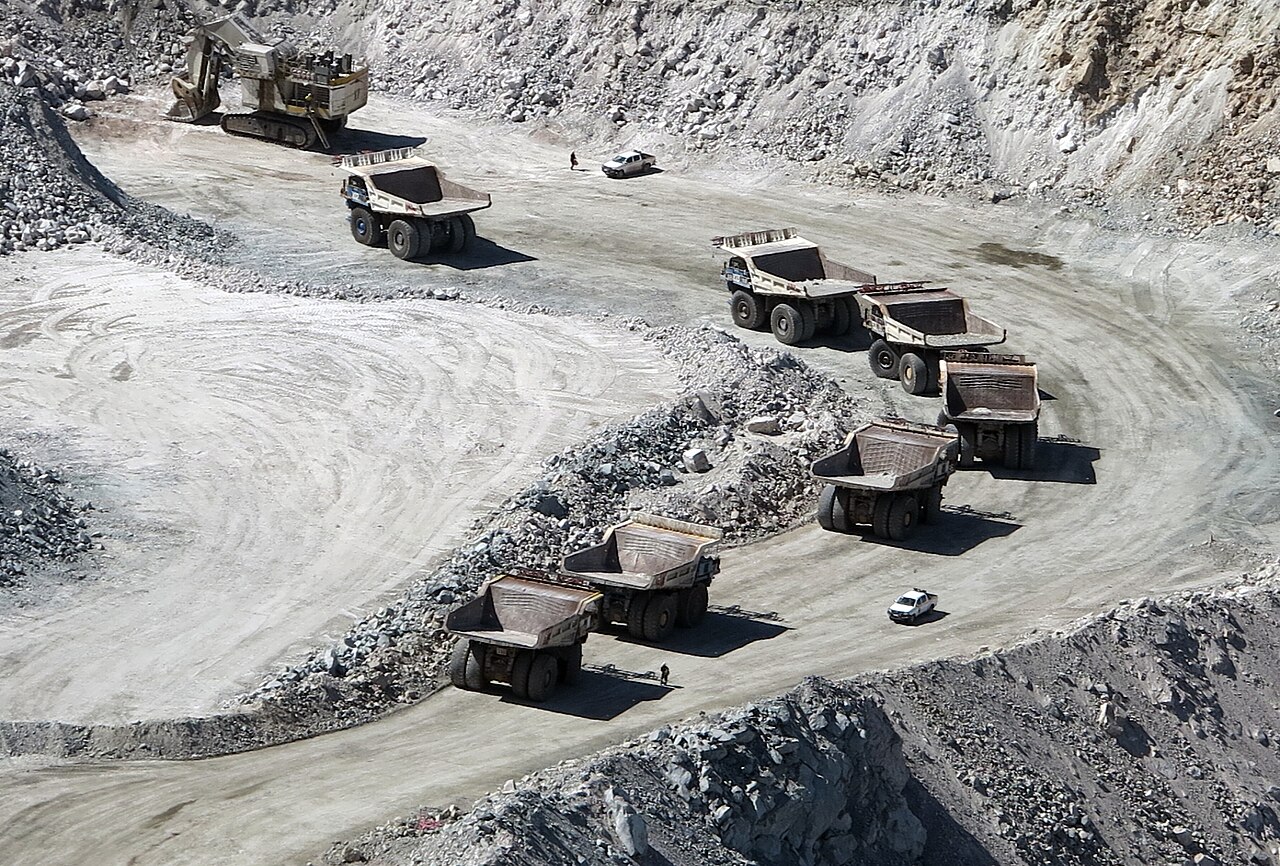Hot Commodities: New Year, Same Problems
Picking up where last year left off, 2016 has seen sanctions lifted against Iran amid the implosion of Saudi-Iranian diplomatic relations while the first U.S. crude oil exports to Europe arrived amid the continued downward march of oil prices. Still to come is the highly anticipated first shipment of U.S. LNG exports from Cheniere’s Sabine Pass facility against the backdrop of questions about the future of European energy policy in the nascent Energy Union’s promised “Year of Delivery.”
Published by The Lawfare Institute
in Cooperation With

Picking up where last year left off, 2016 has seen sanctions lifted against Iran amid the implosion of Saudi-Iranian diplomatic relations while the first U.S. crude oil exports to Europe arrived amid the continued downward march of oil prices. Still to come is the highly anticipated first shipment of U.S. LNG exports from Cheniere’s Sabine Pass facility against the backdrop of questions about the future of European energy policy in the nascent Energy Union’s promised “Year of Delivery.”
For those looking for a refresher before diving into this year’s state of play, The Scientific American and USA Today have you covered with a recap of the top energy stories of 2015 along with a glimpse of what the new year might bring.
If your New Year's resolution was figuring out why we are still talking about oil prices in 2016, Clifford Krauss has a helpful primer at the New York Times on the current price collapse and winners and losers. Meanwhile, Spencer Dale gives prognosticates on where the oil market is headed in a commodity note for the Financial Times.
The bottom line? Last year’s problems—and successes—will continue to shape this year’s news.
New Year’s Resolution
For example, the official lifting of U.S. and E.U. sanctions against Iran on January 16.
Since the so-called Implementation Day, speculation abounds as to when and how much Iranian oil and gas production will come online and to what effect. Although the impact of Iranian oil on an already flooded market is just one piece of a larger drama unfolding between Tehran and Riyadh, European firms are rushing to (re-)establish business ties in post-sanctions Iran. And Iran, for its part, is losing no time going out in search of new markets. Reuters reports that Iran is looking to Europe, where Saudi Arabia has been selling crude at a discount, and India, which was deemed the energy demand driver of the future in the 2015 IEA World Energy Outlook.
While Iranian production and the increasingly cutthroat competition for global market share will reverberate across the energy world, Iran has been quietly increasing energy ties elsewhere. According to Greg Everett and N. Jordan Jameson in Foreign Affairs, Iran has long been in the business of building energy infrastructure—and thus buying influence—in Iraq.
The authors argue that Iranian investment in the electricity sector in predominantly Shia southern Iraq is part of a strategy to expand influence in the country—and a sign that the proxy wars and jockeying for influence occurring across the Middle East from Syria to Yemen are not going anywhere. However, while Iraq’s electricity sector desperately needs investment and infrastructure, it is the ISIS-controlled and Sunni-inhabited areas that feel this need most acutely. The authors warn that lopsided investment, and thus inherently unequal power provision, could worsen already severe sectarian tensions.
And 2016 Firsts
The first shipment of U.S. crude oil exports, also known as “Liquid American Freedom”, reached Europe at the end of January following the removal of export restrictions in the December 2015 Congressional budget deal.
This milestone is anticipated to be followed by another: the first shipment of U.S. LNG exports. While the shipment from Cheniere’s Sabine Pass was expected in January, mechanical problems have reportedly pushed the due date back to February or March. However, the delay has not muted the debate over what this means for LNG markets, suppliers, and geopolitics—and Gazprom.
Amid the specter of growing LNG supplies from the U.S. as well as Australia, some say Gazprom is facing a similar dilemma as OPEC and Saudi Arabia in 2014: should it fight for price or for market share?
Asking the question on everyone’s mind, the Financial Times explores the possibility that Gazprom could start a price war in the attempt to undercut would-be competitors in the European market—and conclude the logic backing such a move is clear. Much like Saudi Arabia, Gazprom is a low-cost producer and possesses the lion’s share of global spare production capacity. And much like the Saudis, it wants to keeps its customers.
While some argue such a race to the bottom could further destabilize an already-weak ruble and push Russia to the brink, Keith Johnson argues in Foreign Policy that low prices could help “cement rather than diminish Russia’s stranglehold over Europe”—and complicate the outlook for U.S. LNG in the process. A recent report from the Oxford Energy Institute, Gazprom- Is 2016 the Year for a Change of Pricing Strategy in Europe?, largely agrees. With Gazprom’s much-promoted pivot to Asia still uncertain, the report concludes that “defence of its core European markets will be of fundamental importance both to its own performance and to the Kremlin’s ability to use gas as a geopolitical tool over the next few years.”
For the optimists out there, a recent Atlantic Council report on the impact of LNG remains bullish on the security value-added of U.S. exports. The report, Surging Liquified Natural Gas Trade, How U.S. Exports will Benefit European and Global Gas Supply Diversity, Competition, and Security, concludes that U.S. exports are in keeping with the diversification goals enshrined in the EU’s Energy Union strategy—and will benefit the U.S. and its trading partners “economically, politically, and environmentally.”
A Texas Tea Party
However, lessons from the Saudi experience could give Gazprom pause. Though the oil market is certainly not the gas market, it has turned out to be more difficult to kill off U.S. oil production than assumed. Although rig counts are declining and production tax revenues are falling, a Bloomberg Intelligence report found that one state may be better positioned to weather the oil price declines than others: Texas.
Thanks to low break-even prices, not all Texas producers are down for the count—yet. However, that does not mean the Lone Star State is not feeling the pain alongside places like North Dakota, which has gone from man camps to ghost down. It does mean that oil prices will have to dip below $30 per barrel to kill off U.S. shale production as OPEC’s game of chicken continues.
Just how low can Saudi go? The secrecy surrounding Saudi Aramco’s production makes it difficult to tell. According to a Quartz analysis from last year, production from Saudi’s Ghawar field could cost as little as $10-20 per barrel. However, while this is enough for Saudi Arabia to maintain production, it is certainly not enough to meet revenue needs.
This doesn’t mean that low oil prices are not also bad news for Texas, which is facing declining state revenues and could see a slight decline in employment. However, things could be worse.
When Boom Goes Bust
Like in Oman, where the government borrowed $1 billion last month to plug its budget hole. Or Qatar, which sought a $5.5 billion dollar loan, according to Reuters.
Or in Azerbaijan, where President/strongman—and honorary Corleone family member—Ilham Aliyev faces a new phenomenon: public unrest. As the Financial Times explains, dissent and protest are new issues for Aliyev, who took over from his father amid rising oil prices and expanding coffers. Much like his dad, he has little tolerance for naysayers. If you’re looking for some reading material, the State Department cables profiling the Aliyev family are quite colorful and publically available courtesy of Wikileaks.
However, while previous achievements of Aliyev’s rule include securing Azerbaijan’s place in the 2010 Guinness Book of World Records for the world’s tallest flagpole and hosting the 2012 Eurovision song contest, things took took a turn for the worst in the oil rich country last year. As Bloomberg reports, the Azeri manat was among the worst performing currencies of 2015, and cracks may be appearing in the edifice of his family’s forty year grip on power. (Update: Azerbaijan lost its claim to fame when Tajikistan erected an even taller flagpole in 2011.)
And in a familiar storyline in many oil-rich but cash-strapped countries, Aliyev is raising public salaries and cutting taxes on essential items like bread in an attempt to temper growing discontent. It remains to be seen whether such measures will ameliorate potential backlash over spending on events like the country’s first-ever Formula One Grand Prix. According to Voice of America, tickets are going for $665--more than twice the average monthly salary in Azerbaijan.
Things That Don’t Get Better With Age
Iraq’s Mosul Dam is back in the news after a brief hiatus following the dam’s seizure by ISIS forces and its subsequent reclamation by Iraqi forces in the summer of 2014. The takeover raised fears that ISIS would open the dam in order to unleash a devastating wave of water on the downstream population, effectively using it as a weapon of mass destruction.
While the threat to downstream communities from ISIS has temporarily abated, the potential for a devastating wall of water is still possible. The dam, which has earned notoriety as the most dangerous in the world, was the subject of a 2007 letter from General David Petraeus and Ambassador Ryan Crocker to then Iraqi PM Nouri al-Maliki warning of the imminent danger and massive consequences of collapse.
As Keith Johnson and C.J. Hickey write in Foreign Policy, nearly a decade later the dam is once again a ‘ticking time bomb’ as structural issues, construction flaws, and ageing infrastructure could cause its imminent collapse. While an agreement has been reached with the Italian Trevi Group to fix the dam, the necessary repairs are technically complex and further complicated by the dangerous security environment.
A 2015 article in the Journal of Earth Sciences and Geotechnical Engineering, part of a comprehensive Swedish study on the dam, calls a potential breach a catastrophe, concluding that approximately ‘500,000 civilians will die in addition to the unbelievable damage that will be caused to infrastructure in the country.’ The Iraqi minister of water resources has downplayed concerns, according to Reuters, saying the chances of collapse are only “one in a thousand.”
Both the fear spawned by ISIS takeover over the dam and the very real threat to human life posed by aging infrastructure, illustrate the destructive potential of natural resources and their role in conflict. The situation in Mosul is also illustrative of two interrelated themes in Iraq: the link between legitimacy, service provision, and infrastructure maintenance for water and energy, and the degree to which terrorist organizations are exploiting both the resources themselves as weapons, tools, and targets as well as the government's failure to provide services and maintain infrastructure as a source of grievance.
What to Watch:
EU Solidarity
The new EU Energy Security package, slated to be released today, will include regulation on security of gas supply, a decision on EU oversight of Intergovernmental agreements (IGAs), an LNG and gas storage strategy, and a heating and cooling strategy.
According to Euractiv, the security of supply regulations are based on the principle of solidarity and require that protected customers, like hospitals, in a neighboring countries take precedent over non-protected domestic customers. When it comes to IGAs, all eyes are still on Nord Stream II and Germany, begging the question of the degree to which economics and geopolitics are mixed, and the scope of EU market regulations.
If Gazprom decides to launch a price war amid these new proposals, it could be a boon for European consumers and a potential bane of the nascent energy union’s pillars of solidarity and security—depending on how you define these terms.
A Budget Brawl
President Obama’s announcement that a $10 per barrel tax on oil will be part of his FY 2017 budget request to raise funds for transportation projects and reduce reliance on traditional fossil fuels was met with mixed reactions. While many approved the proposal as appropriate and necessary in a post-COP21 low oil price world, others called it a shortcut around raising the gas tax and a blow to U.S. oil production. The proposal even elicited a “Good Grief” from House Energy and Commerce Chairman Fred Upton.
A Bloomberg Business segment questioning whether or not the proposal is “dead on arrival” could prove to be a polite preview of the debate to come. At issue is whether the tax will be levied on the oil companies or born by the consumer. The oil companies for their part claim they are struggling to survive in the current price environment and point to the tax as a blow to American competitiveness. Meanwhile, attempts to raise the price at the pump will—and indeed already has—led to claims that the Administration is waging a “hostile campaign against American consumers.” Amid such a rhetorically-charged environment, it remains to be seen whether the Administration will fight for the proposal, or just let it float.
Either way, smile. It’s budget season. Between this and the release of the fourth season of House of Cards, the next few months are pure entertainment.
Less Money, More Problems
While much of the attention is on the impact of oil prices in the Middle East, others are looking to the impact in South America. In particular, The Economist warns that Venezuela is on the brink of a ‘social explosion,’ while Juan Cristobal Nagel in Foreign Policy says it is a question of when, not if, the country is going to default.
Meanwhile, Motherboard has the story on the impact of falling oil prices on a commonly overlooked oil producer: Ecuador. Oil and Lava provides insight into the impact of declining revenues on far more than just political stability. It also takes a closer look at Ecuador’s relationship with petrodollars and President Correa’s controversial vision for the future.





